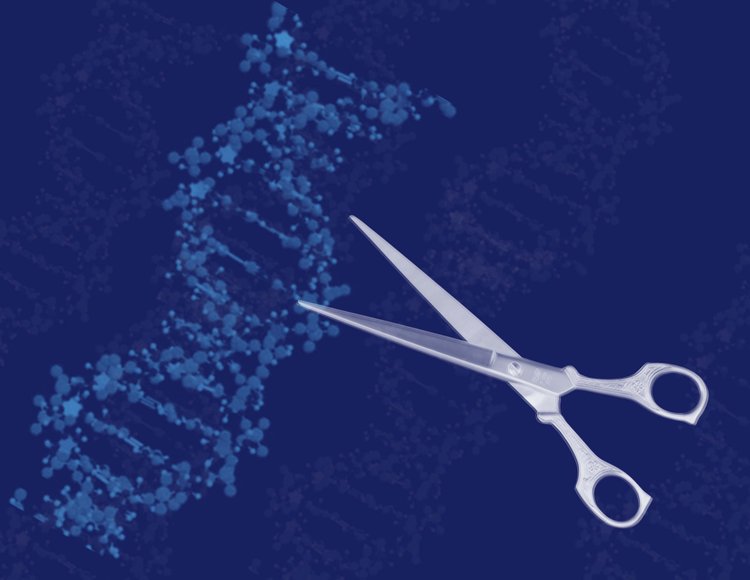
Playing God or Saving Mankind? Genetic engineering and Christian ethics
Delaney Blackburn, Editor-in-Chief
“There is no gene for the human spirit.” – Vincent Freeman, “Gattaca.”
For some Christians, genetic engineering is an unlocked door to the alleviation of human suffering. For other Christians, it’s a way for humans to “play God” by altering God’s creation in ways that were never intended.
Which group of Christians is correct based on biblical ethics?
Randall Moss, assistant professor of biology at North Greenville University, says genetic engineering provides avenues for groundbreaking research.
Moss said, “One application of genetic engineering is using model cells rather than organisms so that we can do basic research and see how various gene expressions and protein modifications could affect organisms.”
Moss said when he worked in a lab to study viruses, he studied cancer biology. Rather than having to study using the tumors of cancer patients, he was able to use model cells. Model cells are grown from cells that line the surface of the body or donated from a blood sample and kept alive in a controlled environment to be studied. The model cells are then manipulated to express the desired genes.
Regarding the benefits of gene manipulation, Moss said genetically modified organisms (GMO’s) in food have increased food security. Genetically modified foods that have been altered to resist pests, droughts and pesticides have allowed crops to yield despite harsh environmental conditions.

According to a study conducted by PG Economics, between 1996 and 2015, genetically modified crops increased global production by 357.7 million tons of corn and 180.3 million tons of soybean.
Moss said that although GMO’s have been generally positive, they should still be approached with caution to avoid potential issues such as driving native organisms to extinction or changing ecosystems.
Allison Bridges, assistant professor of biology at North Greenville University, also says genetically modified foods are an advantage.
Bridges said, “Depending on where you search for your information about genetically modified foods, a lot of people have different opinions about them.”
Bridges worked with genetic manipulation when she was studying to get her doctoral degree. As a result of this experience, Bridges said she sees genetically modified foods as a benefit.
Bridges said, “A lot of the time when scientists genetically modify different types of foods, they’re modifying those particular plants to be able to survive really harsh conditions.”
Bridges added that because of genetically modified food, the ability to produce more food feeds more people. She said especially for missionaries, introducing this kind of technology to people who don’t have it could provide them with a better crop yield and ultimately better food.
Bridges said the ethical issues of genetic engineering come into play when scientists apply these techniques to other organisms, such as humans. She said once scientists and doctors start manipulating human embryos, that’s when they start to play God by selecting out any genes they view as negative.
Similarly, Moss said the ethical line comes into play when modifying the genes of a living organism. He said scientists need to consider at what point they could be causing harm or overstepping their boundaries, particularly with faith-based issues.
Moss added, “On some levels, you’re playing God…on one hand, God has given us this technology to use well, but there are boundaries or lines we shouldn’t cross.”
For example, Crispr – a relatively new genetic engineering system – has raised ethical concerns from Christians and non-Christians alike.
Crispr is a genetic engineering technology that can cut and paste individual genes in attempt to alter DNA linked to inherited disease. Although more advanced, Crispr is more affordable and accessible to researchers than previous genetic engineering systems.

Scientists have raised concerns over the possible negative effects of Crispr, such as irreversible damage caused by gene alteration that could impact future generations. Crispr also opens the door to non-medical gene alteration, which could change babies’ characteristics such as eye color, hair color, athletic ability, intelligence, etc.
In the science fiction movie “Gattaca,” Jerome Morrow was genetically designed to fit into society’s standards of perfection. From his physical appearance to his personal strengths, his future was determined before he was born.
Before Morrow was born, he was already expected to be highly successful. Morrow was expected to win a gold medal in the Olympics, but instead he won a silver one. His inability to achieve his genetic expectations caused him to act out violently by killing the mission director, although he was not suspected of doing so because he was one of the most successful members of the Gattaca Corporation. Eventually, Morrow’s lack of genetic perfection and impossibly high expectations lead him to take his own life.
The genetic modification of human embryos using technologies such as Crispr has established an ethical boundary for Christians: the boundary of human life. The possible misapplication of genetic engineering could lead to loss of life, mutations and other harmful effects.
For example, Chinese scientist He Jiankui claimed he created the world’s first “Crispr babies” in 2018. The two babies were twin girls whose DNA had been edited using the technology, resulting in manmade mutations because of an imprecise cutting of the DNA – something scientists have expressed concerns about due to the high risk of making similar mistakes. He Jiankui was sentenced to three years in prison for illegal medical practice.
Moss said, “Any time we’re manipulating any organism, especially human embryos, I think we need to be very careful.”
For example, researchers at Columbia University conducted a lab experiment using Crispr on human embryos. More than half of the editing done to these embryos resulted in unwanted changes, mainly the loss of an entire chromosome, which is likely to cause harm to the embryo and be passed on to future generations.
The researchers concluded that gene-editing technology like Crispr is still unsafe for human embryos due to the high risk of creating mutations.
Thomas Willoughby, assistant professor of Christian studies at North Greenville University, says there are pros and cons to this type of technology.
Willoughby said that because healing is viewed as a good thing from a biblical worldview, using technology to cure diseases and debilitating illnesses should be embraced; however, Willoughby said the line between helping people and enhancing people is an important distinction for Christians to make.
Willoughby said, “I think when we start talking about ‘designing’ humans, that’s concerning for me…I think that really strikes at the creative order of God’s intent when he created mankind.”
Both Willoughby and Moss said the secular world often views science as the answer to the world’s problems; thus, genetic modification provides a “savior” to the secular world.
Willoughby said, “From the Christian worldview, ultimately the only relief that comes is going to be through Christ, who makes all things new.”
Willoughby added from a Christian worldview, anything short of Christ’s return will not satisfy. He said he thinks the secular world will always try to reach this satisfaction by pushing the envelope and evolving mankind into something better.
Willoughby advised Christians to take each issue pertaining to genetic engineering and consider what the Bible has to say first. He notes that although the Bible may not outline specific issues related to genetic engineering, the principles within it inform the conscience to draw ethical and moral conclusions.
For example, Willoughby said the Bible emphasizes the value of human life. In the book of Genesis, it is stated that God created man and woman in the image of God, and therefore holds value. In Psalm 139:13-16, it is stated that God knows each individual before he/she is formed in the womb. Thus, many Christians believe life begins before conception.
The Bible also repeatedly states that ending human life is sinful in the eyes of God. For example, 1 John 3:12 says, “We should not be like Cain, who was of the evil one and murdered his brother. And why did he murder him? Because his own deeds were evil and his brother’s righteous.”
Based on biblical ethics, one may conclude that altering the genes of human embryos – which could lead to life-altering mutations, or even death – is unethical because it tampers with human life in ways that could lead to harm.
Willoughby said, “I don’t think the Christian needs to be antitechnology or anything of that nature, but I think we need to be wise and discerning as we move forward…it’s about asking, ‘how is this going to impact all of humanity as a result?’”
